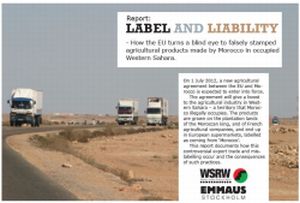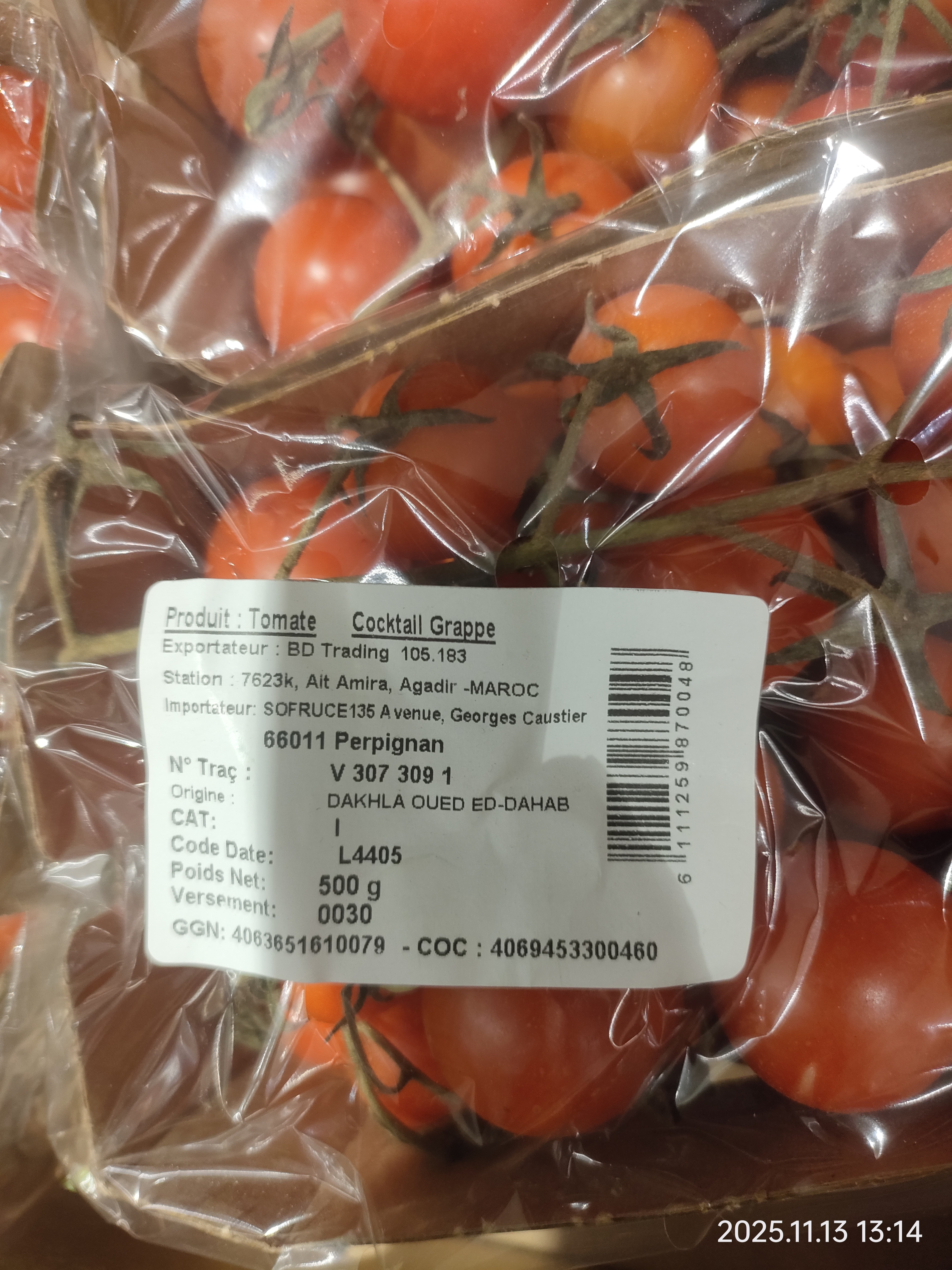
The WSRW report ‘Label and Liability’ documents how produce from the controversial agro-industry in the occupied territory, ends up in the baskets of unaware EU customers.
Western Sahara Resource Watch and Emmaus Stockholm
17 June 2012
On July 1, a new agricultural agreement between the EU and Morocco is expected to enter into force. Its vague territorial scope will allow greater volumes of fresh produce from occupied Western Sahara to enter the EU market.
A new report from Western Sahara Resource Watch launched today documents how produce from the controversial agro-industry in the occupied territory, ends up in the baskets of unaware EU customers. The products are made on plantations owned by the Moroccan King or French-Moroccan conglomerates.

“The income and the employment that these rich lands generate only benefit the occupying power. It directly undermines the UN efforts to solve the conflict”, stated Sara Eyckmans of Western Sahara Resource Watch.
The report, ‘Label and Liability’, reveals furthermore how the industry is blooming under a systematic false country of origin reporting, which leaves the customers in the dark.
Download the report here.
“There is a systematic mislabelling of tomatoes from the occupied territories in EU supermarkets. This is in direct violation of a key EU directive which gives the consumers the right to be properly informed on the country of origin of the products”, stated Eyckmans.
In addition, the entire trade seems unquestioned by the EU. The products are certified locally as “Moroccan” in the occupied territories by the Moroccan Ministry of Agriculture. These offices are remarkably approved by the EU. Through the practice, the EU has a completely different approach to the produce from Western Sahara than on the same vegetable production by Israeli settlements on occupied Palestinian land.
The report also names which vegetable labels that the consumers should be careful of purchasing in local stores.
“As its new trade agreement with Morocco is entering into force, the EU must immediately stop the imports of agricultural products from the occupied territory”, stated Eyckmans.
The report is published by the international organisation Western Sahara Resource Watch together with Emmaus Stockholm from Sweden.
WSRW report reveals massive agri-industry in occupied Western Sahara
The new WSRW report ‘Conflict Tomatoes’, launched today, reveals massive growth in the Moroccan agriculture industry in occupied Western Sahara and its trade to the EU.
Is your local shop selling conflict tomatoes?
Morocco’s tomato export season starts today. But some of the ‘Moroccan’ tomatoes you’ll soon find in your shop have been grown illegally in a territory under military occupation. Have you spotted dirty tomatoes? Help us to identify them in your local store!
EU’s labelling chaos already hitting supermarkets
A packet of cherry tomatoes sold this week in a French supermarket illustrates the confusion triggered by the European Commission’s rushed attempt to adapt EU consumer and trade rules to Morocco’s claims over occupied Western Sahara.
The tomato barons of the occupied Western Sahara
Who benefits from the booming agricultural industry in occupied Western Sahara? Surely not the Saharawis.


